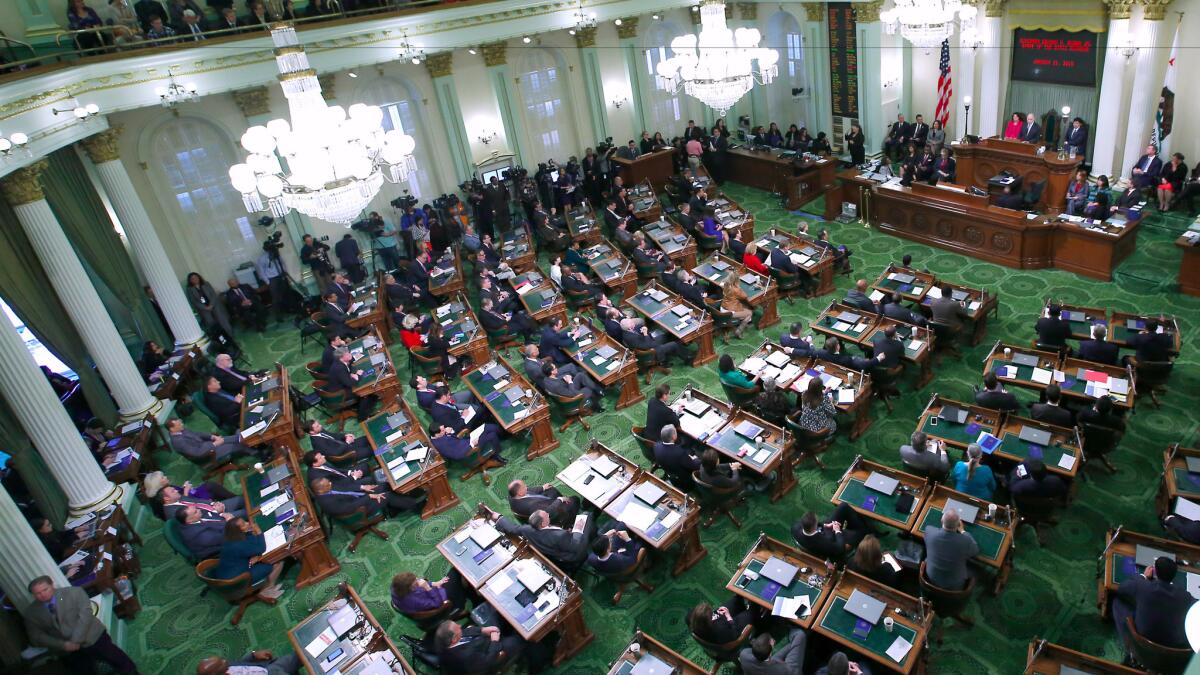Editorial: Surprise! A massive tax hike suddenly appears in Sacramento

There’s never a great time to spring an urgent tax hike on the public. But the proposal Democratic lawmakers unveiled this week to extract billions more from high earners in the state suffers from seriously bad timing — and not just because the economy is in the dumps.
The proposal introduced this week by 15 state legislators would raise taxes by 1% on adjusted gross incomes over $1 million and up to 3.5% on incomes over $5 million to bring in an estimated $6.8 billion in new state revenue a year — and do so permanently. Taxing big earners may seem like a no-brainer, considering how much help the state needs to weather the bleakest economic period since the Great Depression. In fact, a number of wealthy people have implored elected officials to raise their taxes to help with COVID-19 relief. Good for them for stepping up.
Besides, California has relied on temporarily increasing taxes on high earners to get through tough economic times before. A measure passed in 2012 that expires in 2030 helped the state grow the healthy rainy day fund that’s being used to plug some of the revenue loss projected over the next few years. And that didn’t chase away droves of rich folk.
But California already has the highest income tax burden of any state, and it seems unwise to squeeze anyone for more at such an uncertain time. As it is, the state has a dangerous reliance on this small group of high-income households, which account for just 0.5% of taxpayers but provide 40% of the state’s income tax revenue. What if these rich folks simply decide to relocate or shelter assets rather than part with more of their earnings? They certainly have the means to do so.
Meanwhile, there’s another huge transfer of wealth on the November state ballot. Proposition 15 would change the way commercial and industrial property is taxed, basing it on market values rather than the strict limits imposed by Proposition 13. It is expected to bring in as much as $12 billion a year for local governments and school districts.
But most important, there’s simply not enough time to properly vet such a major tax change before the pandemic-shortened legislative session ends on Aug. 31.
The bill’s primary author, Assemblyman Miguel Santiago (D-Los Angeles), said the proposal is a starting point for an important conversation and pledged to look for input. Here’s ours: If it’s a good idea to retool the state’s tax structure to extract more money from high earners — and it may be — it can wait until next year.
More to Read
A cure for the common opinion
Get thought-provoking perspectives with our weekly newsletter.
You may occasionally receive promotional content from the Los Angeles Times.










